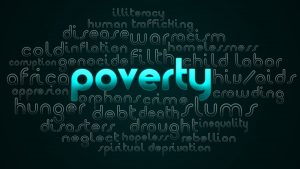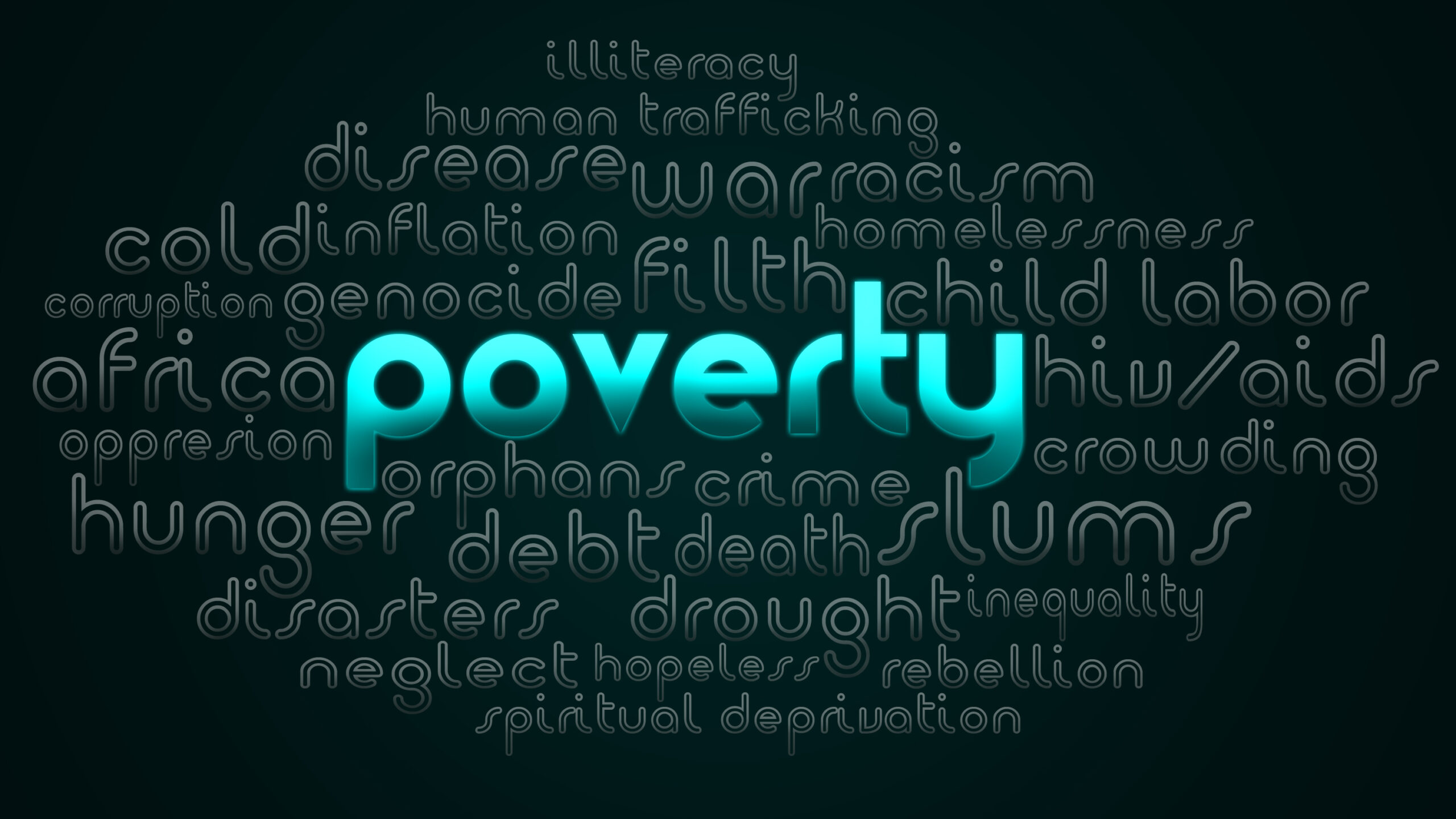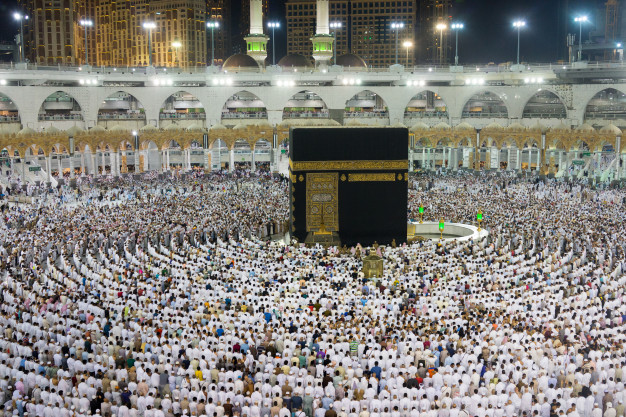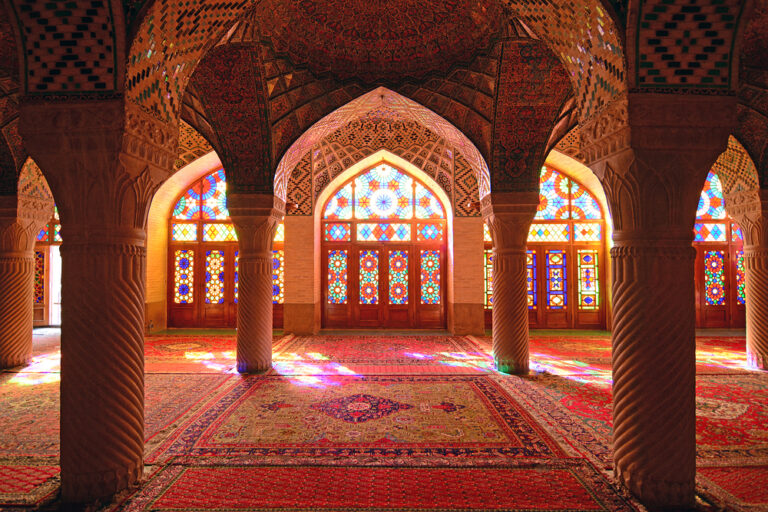By Editorial Staff

Poverty is not a shame but still it is a big suffering for those who undergo its aches and pains.
Poverty is not a shame but still it is a big suffering for those who undergo its aches and pains. It is very hurting, arduous and annoying. Poorness is a challenge, if not appropriately handled, its aftermaths are striking. Poverty creates a fertile environment for the spread of fatal diseases, bad morals and common devastation. The Prophet Muhammad (peace be upon him) used to repeat a supplication in which he asked Allah to protect him from poverty. He (peace be upon him) would say, “O Allah! I ask You for guidance, piety, chastity and self-sufficiency.” (Muslim)
Islam has prescribed effective and practical measures for eradicating poverty and alleviating its effect on people. It is a part of the Muslim creed to engage in every possible means to alleviate the bad conditions of his Muslim brother. Ibn `Abbas (may Allah be pleased with him) narrated that the Prophet (peace be upon him) said, “It is not a (perfect) believer who eats his full while he has a starved neighbor close to him.” (Al-Hakim)
It is thus an Islamic duty upon a Muslim towards other Muslims to help them and relieve their sufferings. Nu`man ibn Bashir (may Allah be pleased with them) reported: “The Messenger of Allah (peace be upon him) said, “The believers in their mutual kindness, compassion and sympathy are just like one body. When one of the limbs suffers, the whole body responds to it with wakefulness and fever”. [Al-Bukhari and Muslim]
In a previous article, we discussed the ideological part of the Islamic approach in combating poverty. Today, we are going to tackle the economical side of the Islamic campaign against poverty.
Building up a fair economic system
Islam has presented an unrivaled economic system that leans on absolute justice, prohibits exploitation and monopolization, urges production and work, highlights honesty and noble manners, ensures fair distribution of resources, guarantees the rights of both the individuals and the governments, and forbids unfair devouring of people’s properties.
God is the real owner
The basis of Islamic economy is that that God is the real owner of everything as He has created them from nothing. However, man is the successor of God in the universe. Almighty Allah says,
To Allah belongs the dominion of the heavens and the earth and whatever is within them. And He is over all things competent. (Al-Ma’idah 5:120)
Man, in this life, is just a user of the natural sources of this universe while the original possessor of everything is the only True God, the Almighty. He (Glory be to Him) has prescribed obligatory share to be given out by the rich to the poor and needy. It is titled Zakah in Islam. This is a right of God to be delivered to the destitute and the weak. Man is not allowed to withhold this right from its beneficiaries because this calls for severe punishment in the hereafter and lack of God’s bless in this life. Almighty Allah says,
And let not those who [greedily] withhold what Allah has given them of His bounty ever think that it is better for them. Rather, it is worse for them. Their necks will be encircled by what they withheld on the Day of Resurrection. And to Allah belongs the heritage of the heavens and the earth. And Allah , with what you do, is [fully] Acquainted. (Aal `Imran 3:180)
Economic freedom
Islam admits the rule of economic freedom for individuals. Everyone has the right to freely invest his money, but within the legal channels approved by Islamic law. There is not restriction or limit for individuals to work and earn so long as they keep away from the prohibited kinds of business, such as gambling, interest based transactions, etc.
There is no blame upon you for seeking bounty from your Lord. (Al-Baqarah 2:198)
It is He who made the earth tame for you – so walk among its slopes and eat of His provision – and to Him is the resurrection. (Al-Mulk 67:15)
The freedom of economy is highly effective in giving wide room for everyone to make use of their talents and skills in earning a sufficient living. There is no restriction for specific activity so long as it is not divinely prohibited for its bad effect on people and society. Otherwise, the whole universe is open for you to work and gain profits.
Multi-typed ownership
Capitalism made private ownership a general rule while the public ownership is limited to rare conditions. Socialism made the opposite by making public ownership a general rule and the private one is very special to rare conditions.
However, Islam has established different kinds of ownership to ensure balance between the individual and community requirements. These economic rules preserve both of the community rights and activities as well as the individual rights and properties. The government has no right to seize the properties of others while at the same time it is free to have economic activities and projects for the benefit of the whole society. This balance serves to provide a financial cover for the governmental contributions to care for the destitute, the ill and the old ones.
Establishing the individual rights
Islam has set up specific rights that pertain to the honor and dignity which God has endowed man with. Almighty Allah says,
And We have certainly honored the children of Adam and carried them on the land and sea and provided for them of the good things and preferred them over much of what We have created, with [definite] preference. (Al-Israa’ 17:70)
Islam admits the rights of people to life, work, freedom, education, medication, sufficient housing, food and drink, family, etc. These rights are not depending on the wish of the ruler or the demand of the ruled. Rather, they are fundamental and essential for everyone. It is a duty upon those in authority to secure these rights properly and equally without any discrimination relating to color or sex.
In the meantime, Islam has forbidden all kinds of playing with the properties of people and wasting them or taking them without right. For this reason, Islam forbade interest, gambling, prostitution, smuggling, bribe, monopolization, unknown selling, cheating, etc. These transactions destroy the economy, leave devastating impacts on the community as a whole and tear down all the sides of people’s life.
Islam, in clear divine texts, decisively prohibited these matters and threatened its perpetrators with severe punishment in the Hereafter. Abu Bakrah (may Allah be pleased with him) said: “Delivering the sermon during the Farewell Pilgrimage on the day of Sacrifice at Mina, the Messenger of Allah (peace be upon him) said, “Verily your blood, your property and your honor are as sacred and inviolable as the sanctity of this day of yours, in this month of yours and in this town of yours. Verily! I have conveyed this message to you.” [Al-Bukhari and Muslim]
Special characteristics
Prudence
Islam urged its followers to observe prudence in spending and not to be spendthrift. The Qur’an stressed this command in Allah’s saying,
And do not set up your hand shackled to your neck, (i.e., Do not be niggardly) nor outspread it widespread altogether, (Literally: outspread it all outspreading, i.e., do not be a spendthrift) for then you will sit blamed and regretfully rejected. (Al-Israa’ 17:29)
And do not be extravagant; surely He does not love the extravagant. (Al-An`am 6:141)
Cooperation
Islam commands people to help one another, especially those in need to that. God says,
And cooperate in righteousness and piety, but do not cooperate in sin and aggression. And fear Allah ; indeed, Allah is severe in penalty. (Al-Ma’idah 5:2)
Abu Hurairah (may Allah be pleased with him) reported: The Messenger of Allah (peace be upon him) said, “A Muslim is a brother to a Muslim. He should neither deceive him nor lie to him, nor leave him without assistance. Everything belonging to a Muslim is inviolable for a Muslim; his honor, his blood and property. Piety is here (and he pointed out to his chest thrice). It is enough for a Muslim to commit evil by despising his Muslim brother.” [At- Tirmidhi].
Gift
Abu Hurairah (may Allah be pleased with him) reported that the Prophet (peace be upon him) said, “O Muslim women, never belittle any gift you give your neighbor even if it is a hoof of a sheep.” [Al-Bukhari and Muslim]
Generosity
Abu Hurairah (may Allah be pleased with him) reported: “The Messenger of Allah (peace be upon him) said, “He who believes in Allah and the Last Day let him not harm his neighbor; and he who believes in Allah and the Last Day let him show hospitality to his guest; and he who believes in Allah and the Last Day let him speak good or remain silent”. [Al- Bukhari and Muslim]
Abu Hurairah narrated that the Prophet said: “The generous one is close to Allah, close to Paradise, close to the people and far from the Fire. The stingy is far from Allah, far from Paradise, far from the people and close to the Fire.” (At-Tirmidhi)
These are some of the intrinsic economic bases that directly serve to tighten the grip around poverty, narrow its spaces, drain its sources, and cut its roots.
To be continued…
[opic_orginalurl]



